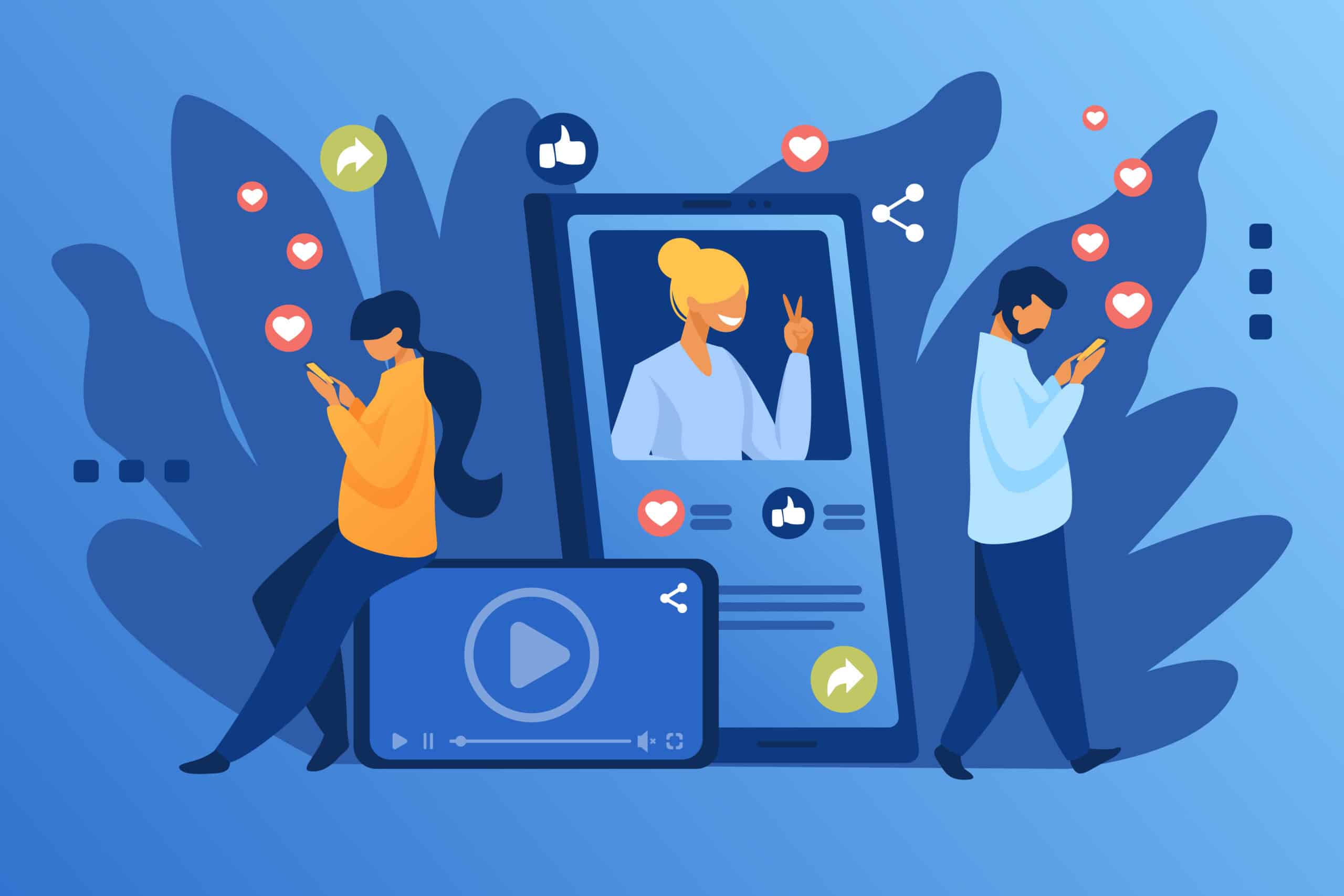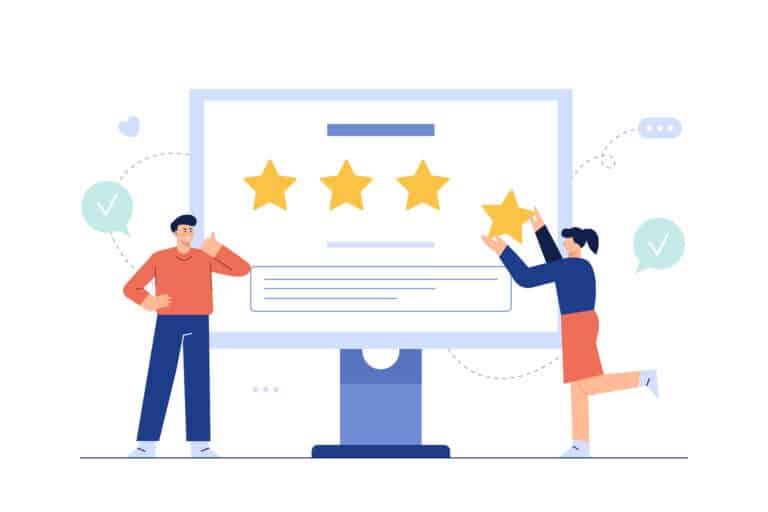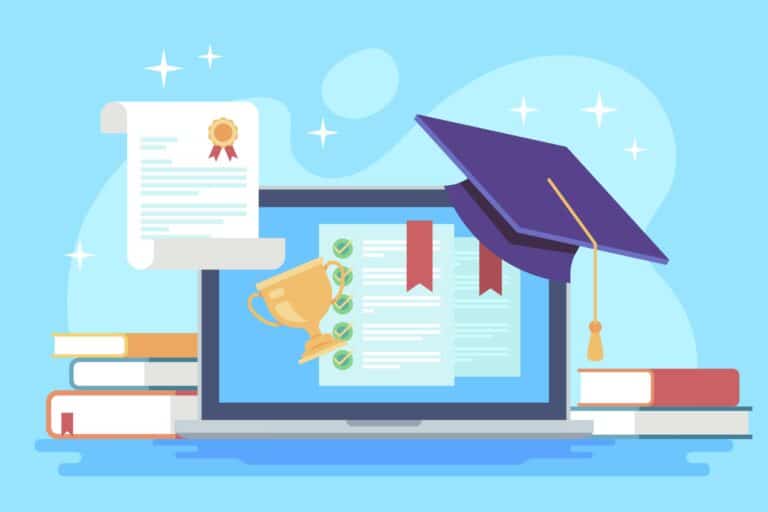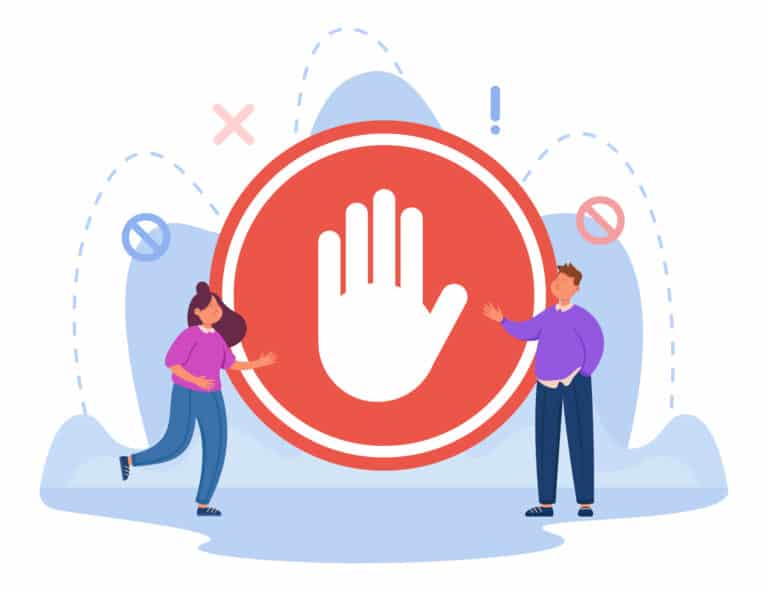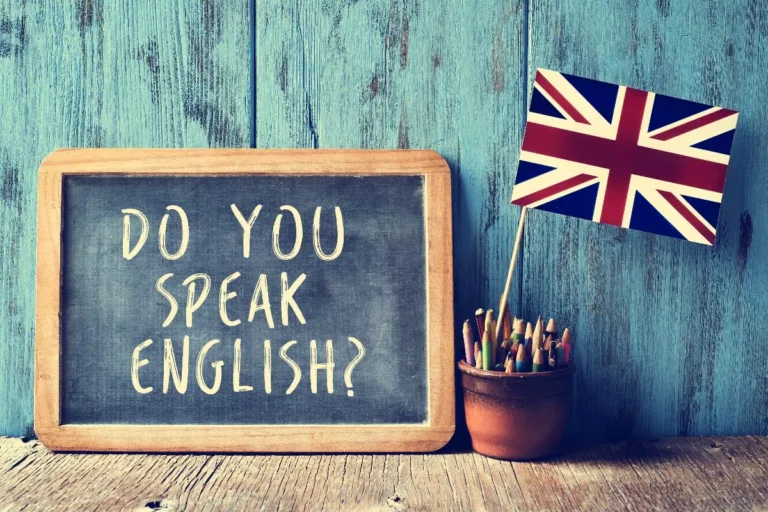The Impact of Social Media on Education: Opportunities & Challenges
With billions of users worldwide, social media has ingrained itself into every aspect of our lives. From Facebook to Instagram to TikTok, we’re all guilty of spending a little too much time scrolling through our feeds. Additionally, social media has changed how we communicate with one another, from sharing photos from our most recent vacation to discussing hot topics and sharing our thoughts online. Nonetheless, there are both positive and negative effects that come along with any technological breakthrough. We shall examine the effects of social media on students in this post. We’ll delve into the advantages social media offers for the educational experiences of students, but we’ll also consider some of the potential disadvantages and how both sides affect students.
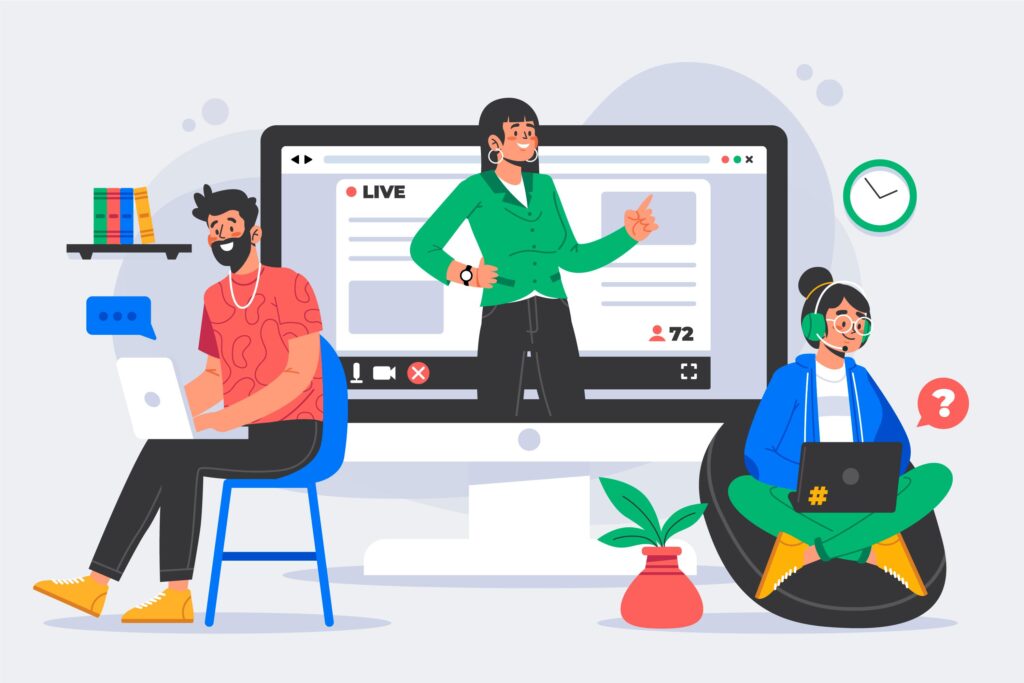
Opportunities
Access to Information
One of the biggest benefits of social media to students is the unprecedented access to information it provides. Back in the day, students had to rely on textbooks and lectures to learn new material. If you needed to research a topic for a project, you’d have to trudge to the library and spend hours flipping through books and encyclopedias. But now, with just a few clicks, we can access a wealth of knowledge from all over the world. Want to learn about the history of ancient Egypt? There’s a YouTube video for that. Need help with algebra? Tweet your question and get an answer from someone across the globe.
Social media has made it possible for students to connect with experts in their field and collaborate with peers from different backgrounds. Plus, with so much information at our fingertips, we’re able to learn at our own pace. We can also explore topics that interest us outside of the traditional curriculum. So, whether you’re looking for help with homework or just want to expand your knowledge base, social media has opened up a whole new world of learning opportunities.
Communication and Collaboration
Another huge positive effect of social media on students is the ability to communicate and collaborate with others. This includes peers and experts from all over the world. With platforms like Google Drive, students can work on group projects in real-time without ever having to be in the same room. With video conferencing tools like Zoom and Skype, teachers can bring guest speakers into their classrooms from anywhere globally. But it’s not just about working together on specific assignments – social media also allows students to connect and share ideas with people who have similar interests or backgrounds.
Whether it’s through a Facebook group or a class-specific hashtag on Twitter, students can ask questions, share resources, and get feedback from their peers at any time of day. And let’s not forget about the power of crowdsourcing – if you’re stumped on a problem or need help brainstorming ideas for a project, social media can be a great way to tap into the collective knowledge of your network. All in all, social media has made it more convenient and efficient than ever before to collaborate with peers, engage in meaningful conversations, or seek assistance from mentors, transforming communication into an essential tool for academic and personal growth.
Professional Networking
In today’s world, who you know can be just as important as what you know, and social media provides an easy way to expand your professional network. For students, this might mean connecting with alumni from their school or professionals in their field of interest. Social media platforms like LinkedIn provide a way for students to connect with professionals in their desired field and potentially land internships or job opportunities. On these platforms, students can create profiles that showcase their skills and experience, build their personal brand and connect with potential employers or mentors. But it’s not just about job opportunities – networking on social media can also lead to internships, research partnerships, and other valuable learning experiences.
For educators, social media provides a way to connect with colleagues from around the world and share best practices for teaching and learning. And with the rise of virtual events and webinars, social media has made it easier than ever to attend conferences and workshops without having to leave your home. Social media has opened up a world of possibilities for students in all fields of study whether you’re looking for career opportunities or just want to expand your professional network.
Online Learning
Online learning has become an increasingly popular way for students to access education, and social media has played a big role in making this possible. With platforms like YouTube, Coursera, Udemy, and Khan Academy, students can access educational videos and tutorials on just about any topic imaginable. Additionally, many universities and colleges offer online courses that allow students earn credits from the comfort of their own homes. These courses often utilize social media tools like discussion forums and video conferencing to facilitate interaction between students and instructors.
Furthermore, social media has made it easier than ever for students to connect with tutors or study groups when they need extra help outside of class. By joining Facebook groups or WhatsApp chats focused on specific subjects or skills, students can get personalized support from peers who have already mastered the material. And as we’ve seen during the COVID-19 pandemic, social media and virtual learning has become a essential educational tool. They keep education accessible and engaging for all students to learn from anywhere at any time.
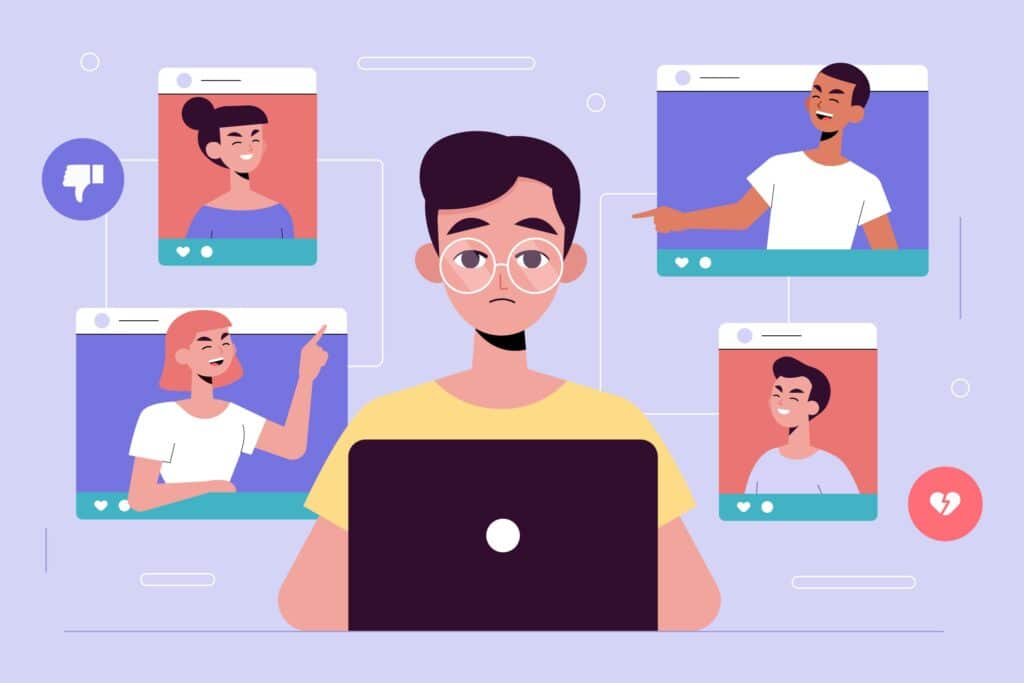
Challenges
Misinformation
While social media can be a powerful tool for learning and communication, it can also be a breeding ground for misinformation. With the rise of fake news and propaganda, students must be extra cautious when consuming information online. With so much content being shared on platforms like Facebook and Twitter, it can be difficult to separate fact from fiction. This is especially true when it comes to controversial topics like politics or health, where there are often conflicting opinions and competing sources of information. Unfortunately, many students may not have the skills or resources to evaluate the accuracy of what they read online, which can lead to confusion or even harm.
Additionally, social media algorithms often prioritize content that generates engagement over accuracy. This means that sensationalized or misleading posts are more likely to go viral than those containing accurate information. This creates an echo chamber effect where people only see content that aligns with their existing beliefs. And this further perpetuates false narratives and limits critical thinking skills. This highlights one of the key unenviable effects of social media on students. However, by promoting digital literacy skills and encouraging students to question everything they read on social media, we can help combat the spread of misinformation in today’s digital age.
Distraction and Addiction
Distraction is one of the most prevalent negative effects of social media on students and education. While social media is a helpful tool for learning and collaboration, it can also become addictive and have negative effects on students’ mental health. With constant notifications, infinite scrolling, and the pressure to maintain an online presence, it’s easy to see how social media can become a habit-forming behavior. Social media addiction has been linked to increased stress, anxiety, and depression, with detrimental effects on the learning process.
Students who are distracted by social media may struggle to stay engaged in class, miss important information or assignments, and experience decreased academic performance as a result. This can limit opportunities for personal growth and development by preventing students from fully engaging in extracurricular activities or building meaningful relationships with peers. Additionally, social media has been known to contribute to the development of FOMO (fear of missing out), which can lead to feelings of inadequacy or inferiority when comparing oneself to others online. This can negatively impact self-esteem and distract from academic pursuits. To combat this, it’s important to encourage healthy digital habits and managing distractions through the use of resources like productivity apps or time management tools. Ultimately, by acknowledging the potential for distraction and proactively addressing this issue, we can help ensure that social media remains a positive tool for learning rather than a source of interference.
Cyberbullying
One of the most major detrimental effects of social media on students and education is cyberbullying. Bullies can target their victims with a degree of intensity and perseverance that would be challenging to achieve in person thanks to the anonymity and distance offered by online interactions. In severe circumstances, this could result in physical harm, long-lasting emotional anguish, low self-esteem, and even death.
Cyberbullying also produces a toxic atmosphere that disrupts the sense of community and safety that is crucial for learning. This can make it difficult for students to concentrate on their schoolwork or form positive relationships with their peers, which can have long-term effects on both their academic and emotional growth. From students to educators, everyone has a role to play. We can help in taking proactive steps to prevent cyberbullying and support those who have been affected by it. We can help create a positive learning environment where all students feel valued, respected, and safe from harm.
Privacy Concerns
We all share so much personal information online. Hence, it’s simple for hackers and malicious actors to obtain this private information when we unknowingly reveal too much about ourselves. Identity theft, financial fraud, and other negative repercussions could result from this.
In addition, social media corporations frequently amass enormous amounts of user data including browsing history, search queries, and location information. They either use these for targeted advertising or sell them to outside businesses without the user’s knowledge or consent. This raises concerns regarding the ownership of and usage of our personal data. It’s important for students to know about the importance of privacy and how to protect their personal information online. This includes setting strict privacy settings on social media accounts, avoiding oversharing personal details online, and being cautious about accepting friend requests from strangers. By working together as a community to address these privacy concerns, we can help create a safer and more secure online environment for all students.
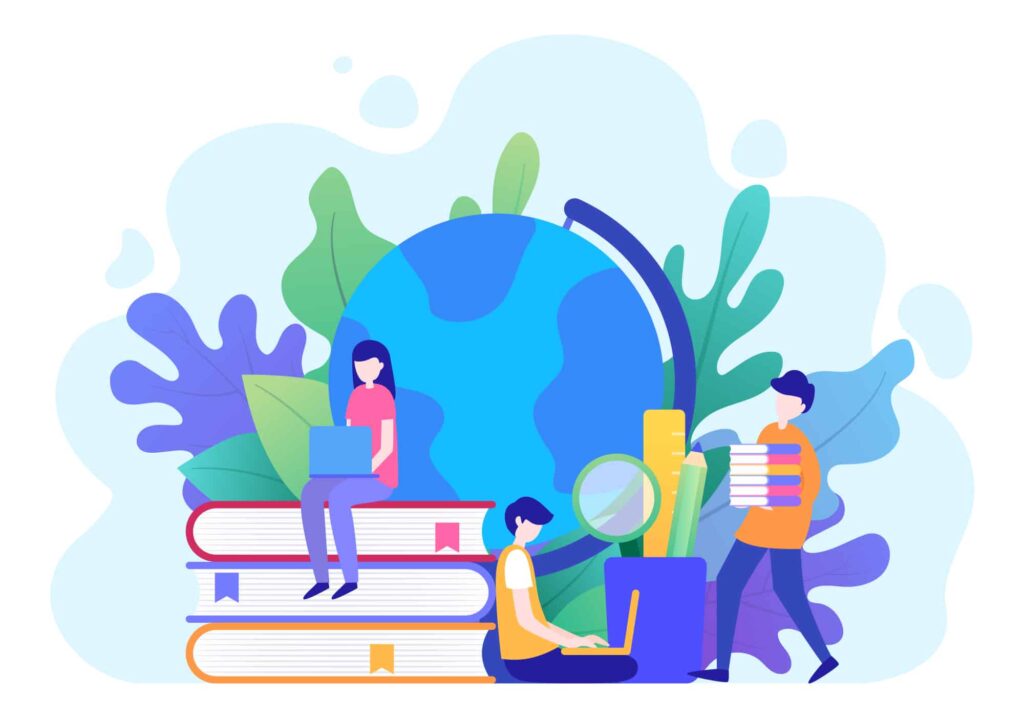
Conclusion
Social media has greatly impacted the way we communicate and interact with each other, and that same impact is evident in the world of education. The integration of social media into modern education creates a unique dynamic that both teachers and students have to navigate. On one hand, it enables easy access to valuable resources and encourages collaboration and communication. On the other hand, it carries with it some downsides of information overload, distractions, and cyberbullying. There is no perfect answer for how exactly social media should be used in education but it’s clear that thoughtful consideration needs to be given so students can reap the most benefit from its use.
We need to make sure that we’re using social media responsibly, safely and effectively. This means taking measures such as not over-sharing private or personal information, being wary of where information is being taken from, and making sure that everything used or posted is respectful and appropriate. Social media can definitely help reshape education in a positive way, but it is up to us to ensure that this happens. It is up to us all to prevent the negative effects of social media on students. Ultimately, by recognizing these opportunities and challenges posed by social media, we can be sure that our education system continues to progress towards success.

